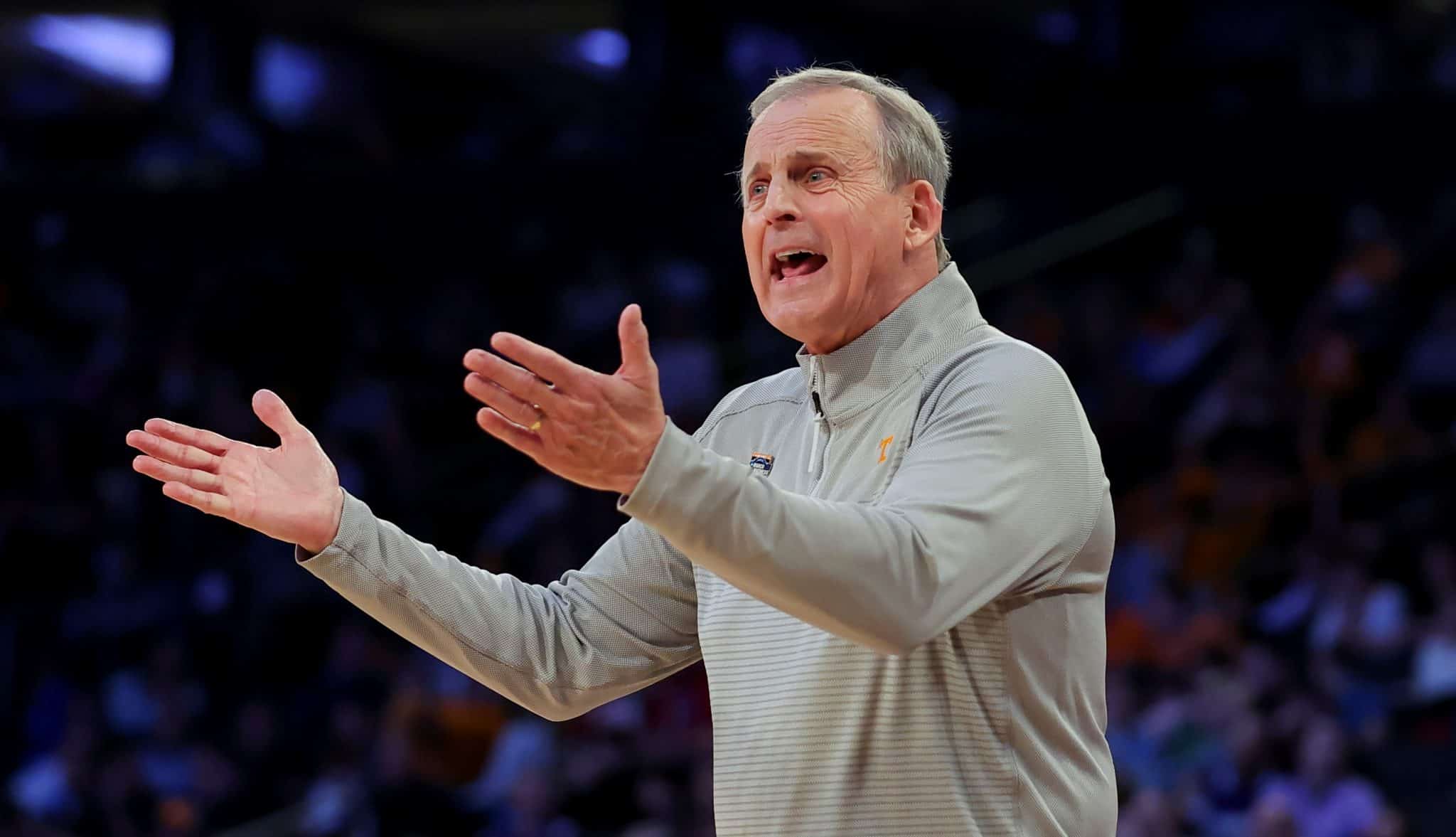
Hayes: Guards win in March, and without Zakai Zeigler, there was no other way for Vols’ run to end
By Matt Hayes
Published:
The end began weeks ago, when a knee buckled and the season suddenly shrunk to the inevitable.
Tennessee can’t win games that matter without a legitimate point guard.
That moment finally arrived Thursday night — 3 weeks after star point guard Zakai Zeigler was lost for the season with a knee injury — in the very place where guard play rules the moment.
FAU 62, Tennessee 55 shouldn’t really surprise anyone.
“It’s always disappointing when you feel like you have a chance to be the last team standing,” Tennessee coach Rick Barnes said. “And you’re not.”
That train left Feb. 28 on Senior Day at Thompson-Boling Arena, when Zeigler tore the ACL in his left knee. Guard-heavy opponents in the SEC and the NCAA tournaments just reinforced that.
It hit the final breaking point against FAU, when the lack of a true point guard — a table setter on offense and a perimeter defender — against a guard-heavy team paralyzed the Vols.
Look at the season since Zeigler was lost: losses to 2 guard-heavy teams needing strong wins to reach the NCAA Tournament (Auburn, Missouri), sandwiched around a win over 1 of the worst teams in the SEC (Ole Miss).
Then the NCAA Tournament began, and the Vols were fortunate to get out of the 1st round against guard-heavy Louisiana before playing their best game of the season against Duke — which has twice as many 2nd-round tournament losses in the past 10 years (4) as Final Fours (2).
Then came the implosion against FAU — a team that’s loaded in the backcourt and full of shooters who can create shots, and defenders who can extend to the perimeter and disrupt offensive sets.
FAU was just 3-of-14 from the arc in the 1st half, but its perimeter defense was so sticky, Tennessee couldn’t put away the Owls when it had the chance.
Santiago Vescovi did his best to run point for Tennessee, but he’s a 2 guard with decent ball skills who can’t break down defenses. The extended pressure confused the offense — which frankly, was limited at times this season even with Zeigler — and the Vols couldn’t get into their sets until they were deep into the shot clock.
No ball movement, no ball screens and poor shot selection. Once shots in the paint — where Tennessee had a significant size advantage — stopped falling, the offense devolved into trying to run sets with 10-12 seconds on the shot clock.
That, of course, led to terrible shot selection — and worse, players giving up open shots because they wanted no part of the shot or the moment.
Meanwhile, there was FAU, thriving in the moment and getting hot in the 2nd half — and the next thing you know, the Owls began a run at the midway point of the half and outscored Tennessee 20-4 over 6 minutes to essentially put away the game.
There couldn’t have been a more fitting explanation to the desperate need for guard play in the NCAA Tournament than what transpired over those 6 minutes — on both sides of the court.
FAU kept hitting big shots from the perimeter in the 2nd half, and Tennessee kept missing shots and/or passing up open looks. FAU had no answer for Tennessee’s front court of Uros Plavsic and Olivier Nkamhoua — yet after Plavsic got hot early, he got timid late when shots didn’t fall.
Nkamhoua, meanwhile, did what he has done all season: play like an NBA lottery pick 1 game (27 points vs. Duke), and get lost the next 4-5 games. He had 6 points on 2-of-9 shooting, and the lack of motion and ball movement in the offense (see: no true point guard and FAU’s perimeter defense) strangled his game.
The 40 minutes of dysfunction for Tennessee was the very definition of why guards are everything in the NCAA Tournament. It also begs this question: Was the roster truly built to get deep into the tournament?
You’d like to think with a healthy Zeigler, Tennessee has a chance to make a deep run. But the Vols have been in this place before under Barnes, and every other ending was just as frustrating.
It’s easy to blame Barnes, who has a history of underachieving at Texas and now Tennessee. Then he made it worse on himself after the game by — wait for it — blaming players:
— “We had some breakdowns with some players that made you feel like they weren’t locked in. I don’t know why.”
— “We normally don’t allow teams to rebound offensively like that, but we did tonight.” (FAU had 12 offensive boards; Duke had 6, for instance.)
— “We needed to be more aggressive going to the basket in the 2nd half. They did it. We didn’t.”
All true statements, but statements that can’t be made by a coach whose team collapsed down the stretch of the season because 1 player blew out his knee. If you’re built the right way, you can sustain the loss of 1 player.
Or at least, sustain it enough to beat a mid-major No. 9 seed in the Sweet 16 — with a chance to win 1 more game in a fortunate East Region bracket and get to the Final Four.
“We were lucky we dodged some stuff from their offense in the first half,” Barnes said.
That just delayed the inevitable.
The seeds for this implosion were planted 3 weeks ago.
Matt Hayes is a national college football writer for Saturday Down South. You can hear him daily from 12-3 p.m. on 1010XL in Jacksonville. Follow on Twitter @MattHayesCFB







